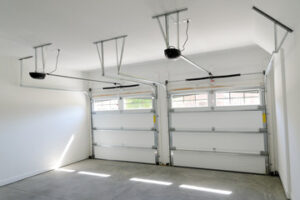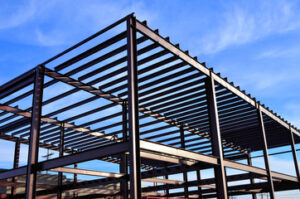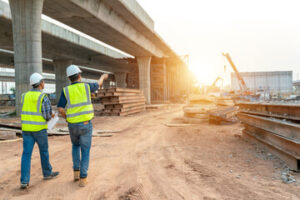New Garage Door Tuttle can boost curb appeal, increase home value and improve energy efficiency. It is also an opportunity to add safety features.

A new garage door is a big investment, but it can improve the curb appeal and value of your home. It can also boost energy efficiency and add safety features. Depending on your preferences, style, and budget, you can choose from a wide range of models and features. To get an accurate estimate, it is best to schedule a meeting with a reputable dealer in your area and see their products, sizes and samples in person. They can then give you a price quote based on the specific needs of your home.
The cost of your new garage door depends on a variety of factors, including the size and material of the door, and the amount of customization you want to include. The price of a new garage door will increase if you want to include windows, patterns, door frames, and decorative hardware. In addition to the cost of the door itself, you should consider installation costs, permit fees, and sales tax.
You can choose from a number of different styles and designs for your new garage door, but it is important to match the aesthetics of your home. If you are planning to sell your house, it is important to pick a design that will appeal to prospective buyers. It is also a good idea to opt for a garage door that is durable and easy to maintain.
Another factor to consider is the climate in your area. High winds and humidity can cause your garage door to rust or warp. It is also a good idea to invest in a garage door that is insulated to protect your belongings from the elements.
Many new garage doors are equipped with various security features, such as a lock that can only be opened from inside the house. This can help keep intruders out of your house and protect your valuables. In addition, you can also opt for a garage door that opens automatically from a remote control or keypad.
A new garage door can improve the look of your home and increase its value, but it is a major investment that requires professional installation. It is important to choose a door that is safe and durable, and that fits the architectural style of your home. You can also opt for a garage door that is insulated to save on energy bills.
Installation
A new garage door can transform the look of your home, boosting curb appeal and providing an immediate visual upgrade. But you should carefully consider your options before making a final purchase. In addition to style and color, you’ll need to decide whether to include windows, insulation, security features, or other extras. Some of these can increase the price and installation time. Also, if your homeowner’s association imposes design restrictions, these may impact the type of door you can choose.
Unless you’re a savvy do-it-yourselfer, it’s usually best to hire an experienced professional to install your new garage door. The process is complex and requires special tools. In addition, it’s important to follow the manufacturer’s instructions. The good news is that you can easily save money by doing some of the work yourself. The first step is to remove the old garage door and prepare the work area. Once you’ve done this, it’s time to install the track and rollers. After the rollers are in place, you can install the hinges on each side of the garage door panel. Once you have the hinges in place, you can connect them to the vertical tracks using brackets. Once the panels are connected, you can test the operation of the door. If it has a hard time opening or closing, or if the opener seems noisy, there could be a problem with the springs or cables.
A malfunctioning garage door can be a major safety hazard. Many modern doors come with a photo eye sensor and auto-reverse feature that stops the door from closing if something is in its path. The sensors can be tested by placing an object, such as a box or wooden block, in front of the sensor while the door is closing. If the sensor doesn’t reverse the door when it touches an object, you should call a technician.
Other maintenance tasks you can do include lubricating the moving parts of your garage door. Lubricating the track and hardware helps reduce wear and tear, and it can also prevent rust. You can use white lithium grease or spray lubricant to coat the garage door components. You should also replace the weather stripping around your garage door to keep out cold air, moisture and dust.
Maintenance
A garage door is one of the most used parts of your home. You probably open and close it multiple times a day, year-round. The constant use and exposure to the elements naturally wears it down. But a little bit of routine maintenance can go a long way to keeping your garage door running smoothly for years to come.
Regular maintenance inspections can help identify issues before they become major problems and save you from expensive repairs. During these inspections, technicians can tighten loose hardware and reinforce security features to deter burglars. In addition to catching faulty components, annual maintenance can also prevent a variety of weather-related issues. These include rust, wood expansion/contraction, and misalignments.
Garage doors are exposed to a wide range of weather conditions, including rain, snow, wind and sun exposure. Over time, this can lead to rust, fading of dark colors, and degradation of protective topcoat layers. If left unaddressed, these issues can cause serious damage to your new garage door. A routine maintenance check can catch these issues early and provide a quick fix before they escalate into costly repairs or necessitate a complete replacement.
While a minor issue such as chipped paint may not affect the functionality of your new garage door, it is important to address it quickly so that cracks do not spread and create further damage. Repairing a minor problem will typically cost less than replacing the entire door, and it will also help extend the life of your garage door.
Another essential part of maintenance is lubricating your garage door’s moving parts. This will help keep them from rubbing together, which can cause friction and slow down the operation of your door. In addition, lubrication can also help keep your door from becoming stuck in an open or closed position.
Warranty
Like most products, high-quality garage doors will come with a warranty. This is important, as it helps protect homeowners against unexpected repair costs in the future. The exact terms and conditions of the warranty will vary from one manufacturer to the next, but most will have similar basic features. Ideally, homeowners should read the warranty carefully before making a purchase so that they are fully aware of what is covered and what steps they must take to maintain their warranty.
Generally, the warranty will cover manufacturing defects in all components that make up the garage door. It will also typically cover the installation of the new garage door and its parts. However, it is important to remember that the warranty will not cover any damage caused by accidents, fire, vandalism, or harsh weather conditions. The garage door manufacturer may offer a separate warranty for these types of repairs, which can be helpful to homeowners who live in an area with frequent severe weather.
Another important aspect of a good garage door warranty is that it should cover any problems with the finish, including any discoloration or premature flaking. This is particularly important for painted metal doors, which can be very expensive to repair if the paint or varnish starts to crack or peel. The good news is that most reputable manufacturers include this type of coverage in their warranties, so homeowners should not have to worry about paying for costly door repair expenses.
Some garage door warranties will require homeowners to perform regular maintenance, such as lubricating moving parts, in order to keep them valid. This is a good idea, as it will help prevent future problems and ensure that the warranty remains in effect for as long as possible. Homeowners should also be aware that some warranties will void if the homeowner sells their house or otherwise changes ownership of the garage door. This can be a big financial burden for homeowners, so it is important to understand the terms and conditions of each warranty before buying a new garage door.
Most garage door manufacturers will have a local dealer that can answer any questions about their warranties. In addition, this local dealer can be a great resource when it comes to finding replacement parts or making repairs. Most garage door dealers will be able to determine whether or not an issue is covered by the warranty and will repair or replace the garage door as needed.

